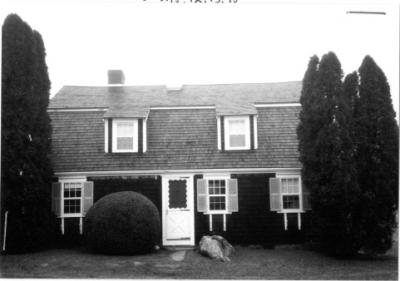Colonial house saved from demolition
A building dating back to the early days of Dartmouth has been granted a reprieve from demolition.
At its June 4 meeting, the Dartmouth Historical Commission voted unanimously that the building at 60 Mishaum Point Road, which dates back to around 1725, is significant. It triggered a public hearing held on June 25, where the demolition was delayed.
According to town law, if an owner wishes to demolish a building that is over 75 years old, the application must be reviewed by the Commission. If the Commission finds that the building is historically significant because of its age, architectural style, location or a notable event or resident, a public hearing to determine if a stay preventing its demolition for six months can be ordered.
The purpose of this delay is to give the property owner time to consider refurbishing the building or sell it to someone who would like to preserve it. It also gives the Commission time to recommend that the building should be added to the Historic District Act, which would permanently protect the property from demolition.
Linda Des Roches researched this house in 1997 as part of her graduate studies in preservation at Boston University. The house, built around 1720 or 1725, was originally located at 250 Russells Mills Road, but was moved in the 1920s to its current site, most likely by being floated up the river. The house was built by Barnabas Earle on his father’s land. His father, Ralph Earle, was one of the earliest settlers in Dartmouth.
The fact that it was moved has some pluses and minuses, Des Roches said. It was placed on a better foundation, and the floorboards, ceiling joists, and sills were replaced, but it lost its historical context by being removed from the family land.
“It’s still sturdy,” Des Roches said. “It’s really impressive that they were doing that [preservation] work that early-- about 100 years ago!”
The house is also significant for its architecture. It has a Gambrel roof, meaning that it is a two sided roof with two slopes on each side, which provides a much roomier second story than the more common Cape Cod style peaked roof. Only a few other houses in Bristol County have this particular kind of roof, although it is more common in Plymouth County.
The delayed demolition will give the Historical Commission time to work with the current owner on other solutions, like finding an architect and contractor who can salvage the building and make it a livable space. According to Des Roches, the current owner has lived in historic houses before, so she has an appreciation for the value of this kind of building.
The stay only prevents demolition for six months, so the house’s survival isn’t guaranteed at this point. But, it just got an important second (or third) chance.















